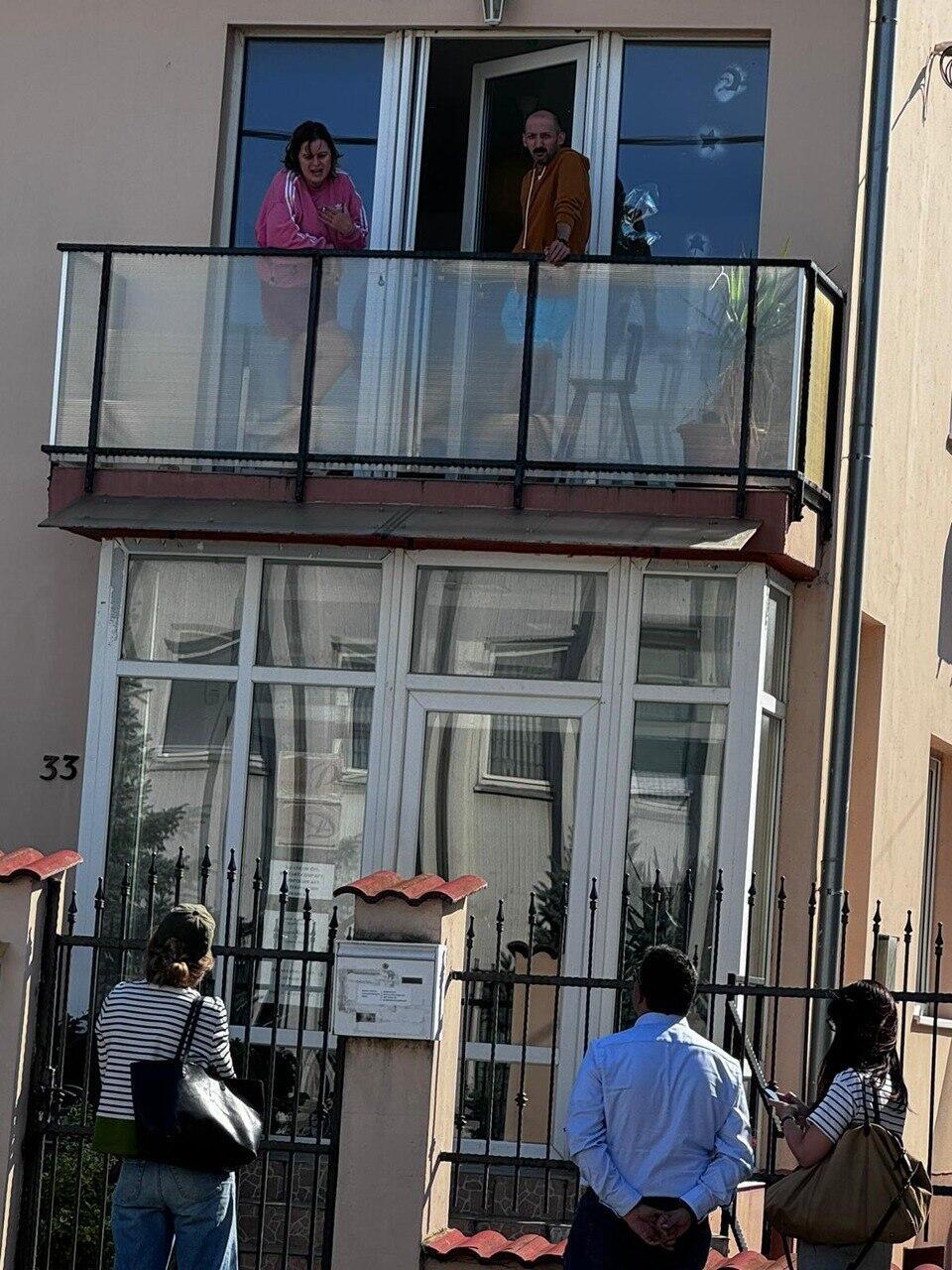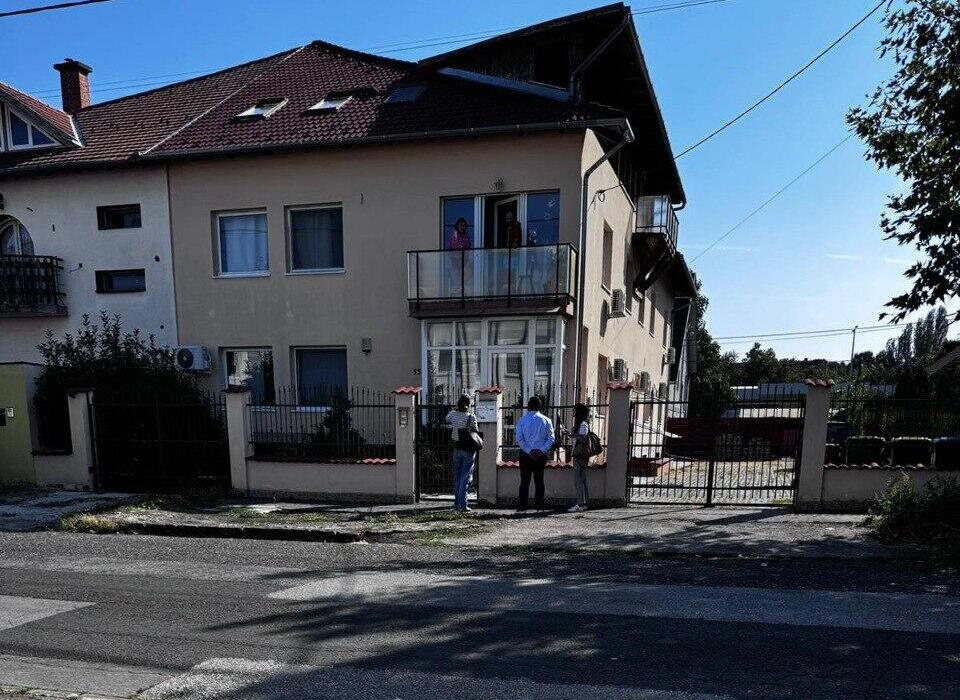Getting your Trinity Audio player ready...
The photo of Italian-Hungarian Christina Arcidiacono Barsony, the woman identified as CEO of the BAC company, implicated in the coordinated pager explosions in Lebanon, and who disappeared off the face of the earth, is not who she was claimed to be. “I know the woman from the photos, and I’ve heard there’s been trouble at the apartment where she lives in Budapest. I know her well. That’s not Christina,” a neibor of the company's offices said.
The Hungarian company BAC, which the Taiwanese brand "Gold Apollo" claims produced the pager that exploded in Lebanon, operated in a discreet, ideal location for secretive activities. The building from which BAC operated—allegedly used by Mossad for the pager operation, according to foreign reports—is tucked away on a side street in a quiet neighborhood, not far from a highway. The area consists of single-family homes with gardens, alongside office buildings and an industrial zone, including a garage. The BAC office is located near house number 33.
The house in Budapest from which the pager company operated
(Reuters)
“I’ve had my business here for 12 years,” said the owner of the garage, who declined to give his name. “In all that time, this office building was always full of companies. They’d come for a few months or a year and then leave. We never saw or heard anyone.” He, like many other neighbors, appeared uneasy, baffled by the sudden attention.
The office building itself is an unremarkable two-story cream-colored structure, surrounded by a black iron fence with brown-tiled roof decorations between the gates. A parking lot on the right holds four bins for waste sorting, while a driveway on the left leads to an underground garage. Four steps lead up to the entrance, where a large white mailbox bears the names of two companies, next to an intercom with four buttons. The second button from the top reads "Claudia."
At 10:30 am, a couple stepped out onto the second-floor balcony of house number 33, chain-smoking cigarettes. “I just want them to leave us alone,” the woman said. “Yesterday morning, we had a quiet, normal life, and now the whole world wants to know who we are. It’s crazy, absolutely insane. We’re terrified. Our home and address are exposed to everyone, and for something like this? Today it’s journalists, but who knows who’ll come next week. We’ve never seen anyone from BAC—just a secretary who showed up occasionally, but we don’t know who she worked for. We just want to be left in peace.”
One day, you live in a forgotten corner where no one cares, and the next, you’re on the front pages worldwide. “It’s crazy and frightening. We’re scared,” she added, lighting a new cigarette with the previous one, her hands trembling.
An elderly couple from a nearby house got into their red Dacia and left for shopping. “There’s never been even a hint of noise here,” the man said in German before quickly disappearing down the street. The story of the pagers and communication devices that exploded on Hezbollah operatives in Lebanon is turning into a thriller even John le Carré couldn’t have dreamed up.
Christina herself, and her background, are shrouded in inconsistencies and suspicions. The places she claimed to have worked don’t exist, and their websites are nowhere to be found. She personally denied any connection to the production of pagers in a statement to NBC, also refuting the claim by the Taiwanese "Gold Apollo" brand that she had received permission only to use their trademark, while all manufacturing and design were handled by her company.
Before BAC’s website went offline, according to the German newspaper Bild, the company had also offered a jewelry line for sale, called “Nelkhael,” after the 21st angel from a list of 72 angels in Kabbalah. Meanwhile, the Hungarian site Telex reported that the pagers were actually sold to Hezbollah by a Bulgarian company named "Global NORTA Ltd."
Telex further reported that Global NORTA, based in Sofia, Bulgaria, was responsible for manufacturing and exporting the pagers to Lebanon, while BAC merely served as a broker. This was supported by a Hungarian government spokesperson, who claimed the devices never physically passed through Hungarian territory. However, this statement should be taken with caution: if it is revealed that devices intended for terrorist groups were produced on Hungarian soil, it would constitute a serious violation of European Union laws.
The report added that BAC was merely a shell company facilitating the deal between Taiwan and Bulgaria, while "Global NORTA Ltd." handled the import of the devices from Taiwan and their shipment to Lebanon. Global NORTA, founded in April 2022, just a month before BAC, is owned by a Norwegian citizen. The address listed for the Bulgarian company is also home to 196 other registered businesses.
“I informed the tech company where I work as a project manager in the 11th district that I won’t be coming in. I have a six-month-old daughter. We lived very quiet lives, and now our address is everywhere, "the neighbor at number 33 said. "My instinct is to be afraid of any grieving family member who lost someone in these explosions and might come here. I know they probably understand this address is nothing, but I’m thinking rationally here—and there’s no rationale in this.”
“I’m not angry at Israel,” he added. “What do I care about Israel? If it weren’t for this house, I wouldn’t even know about the whole thing. I like to run and spend time with my family. How does this concern me? I took my kids to school and took public transportation to work. Then my wife called me and said I should probably come home. I asked why, and she said something happened—that the phones downstairs wouldn’t stop ringing.”
What truly astonished the neighbor, he said, “was the government’s statement denying any involvement. But what amazes me even more is that no one has raided the offices, collected documents, or seized computers. There’s no investigation. Hungary isn’t even trying to figure out what happened with these offices.”








